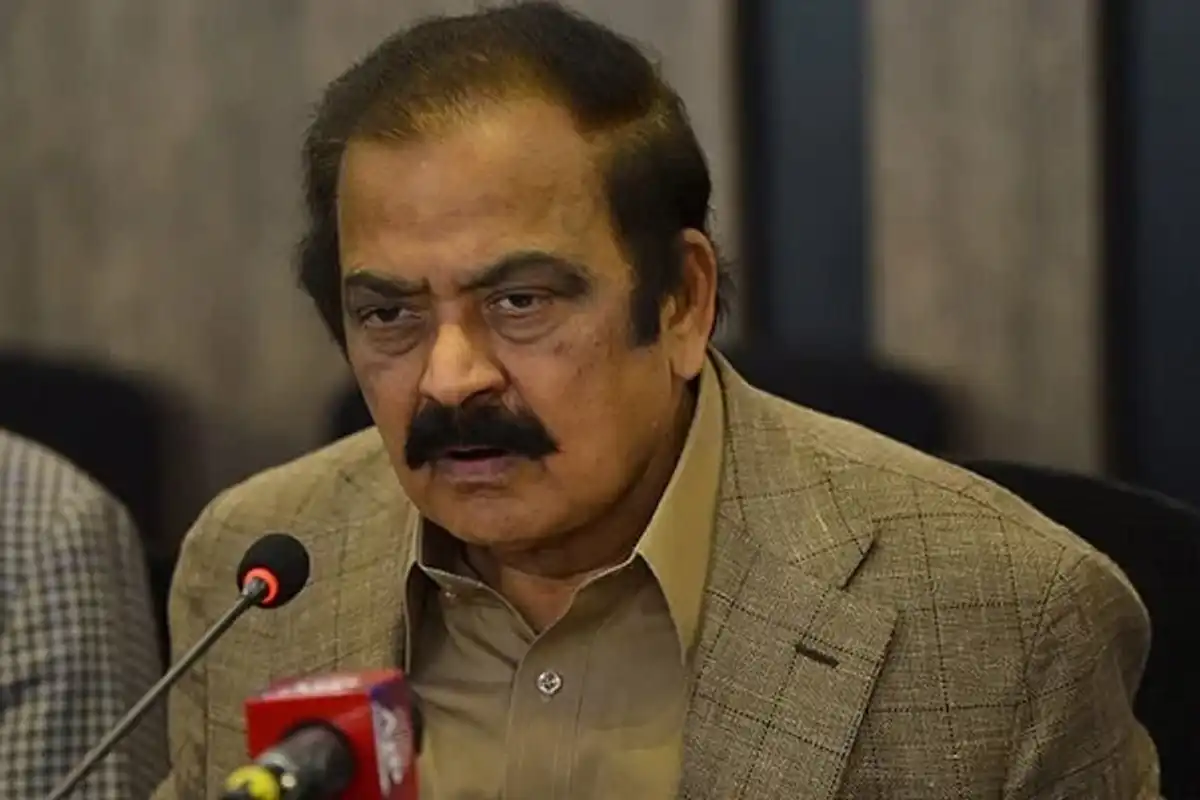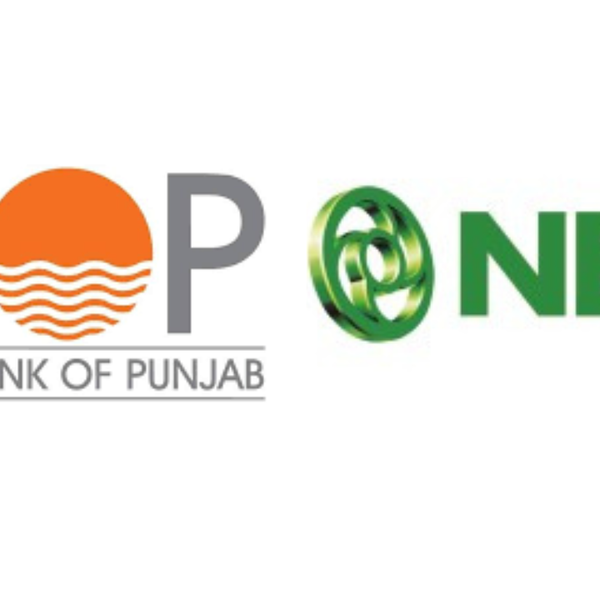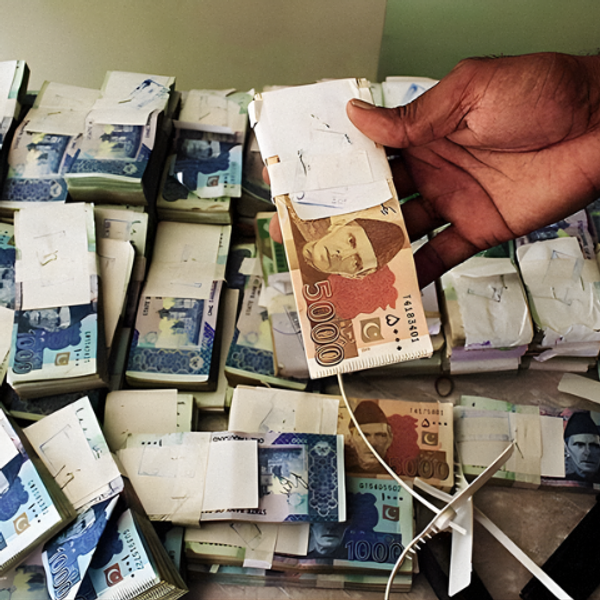‘No province’s water being diverted,’ says Pakistan govt adviser amid canal controversy
Rana Sanaullah stresses dialogue to resolve the water dispute in call with Sindh Information Minister Sharjeel Memon

Javed Hussain
Correspondent
I have almost 20 years of experience in print, radio, and TV media. I started my career with "Daily Jang" after which I got the opportunity to work in FM 103, Radio Pakistan, News One, Ab Tak News, Dawn News TV, Dunya News, 92 News and regional channels Rohi TV, Apna Channel and Sach TV where I worked and gained experience in different areas of all three mediums. My journey from reporting to news anchor in these organisations was excellent. Now, I am working as a correspondent with Nukta in Islamabad, where I get the opportunity of in-depth journalism and storytelling while I am now covering parliamentary affairs, politics, and technology.

Prime Minister Shehbaz Sharif’s Advisor on Political Affairs Rana Sanaullah.
AFP/File
The federal government formally engaged on Monday with provincial government of Sindh to address mounting concerns over canal water distribution, pledging to expand consultations and respond to the grievances raised by the province.
Prime Minister’s Adviser on Inter-Provincial Coordination, Rana Sanaullah, held a phone conversation with Sindh Information Minister Sharjeel Inam Memon, during which both sides agreed to continue consultations on the issue.
In a statement released by Sanaullah’s office, he emphasized the importance of resolving the dispute through dialogue. He reiterated that, under the national Water Accord, no province’s water can be diverted to another — and no such transfer is taking place.
“Water distribution is a technical and administrative matter, and it will be resolved as such,” the statement read. “We will ensure no province’s rights are violated. The concerns raised by the provinces will be addressed, and the consultation process will be expanded.”
Ruling party urges dialogue
Earlier, in a conversation with Nukta, Sanaullah said the Pakistan Muslim League-Nawaz (PML-N) leadership had directed that all issues with the PPP be resolved through dialogue.
He said that PML-N President Muhammad Nawaz Sharif and Prime Minister Shehbaz Sharif fully believe in the fair distribution of resources, including water, to the provinces. "The PPP is part of the federation," Sanaullah said. "While holding constitutional positions, one should speak more responsibly."
Sanaullah’s remarks came amid growing tensions within Pakistan’s ruling coalition. His party shares power with the PPP, whose co-chairman Asif Ali Zardari is the country’s president. Yet, his party staunchly opposes the construction of canals drawing water from the Indus River — a contentious issue in Sindh, the PPP’s political stronghold.
Speaking at a public rally in Hyderabad last week, PPP Chairman Bilawal Bhutto-Zardari warned that his party will quit the federal coalition government if the canal projects are not cancelled.
The federal government claims the canals are necessary for national development. However, the Sindh Assembly has unanimously passed a resolution demanding their cancellation.
The controversy deepened after reports emerged that President Zardari, Bilawal’s father, had approved the canal plan during a meeting on July 8, 2024.
Zardari denied this in a speech to Parliament on March 10, 2025, and urged the federal government to consult provinces before making such decisions.
The canal project has now become a political flashpoint, placing the PPP in a difficult position as it tries to balance federal responsibilities with regional loyalty.
‘No politics on water issue’
Rana Sanaullah emphasized the party's respect for the PPP leadership. He said that in the presence of the 1991 interprovincial water agreement and the IRSA Act of 1992, no province can be wronged.
“The water share of one province cannot go to another province,” he said. “There are constitutional procedures and laws in the country to ensure this. There should be no politics on the water issue. Issues should be resolved by sitting at the table.”
He further stated that the PML-N considers the strength of the provinces as the strength of the federation. "We will continue to follow the same approach as in the past," he said.
“As a party that firmly believes in the constitution and democracy, we will not compromise on protecting the rights of the units and the people living in them. Dialogue and consultation are the only solutions to every problem.”
Fifth round of talks
Meanwhile, the fifth session of coordination committee talks between the PPP and PML-N was held Sunday at the Governor House in Lahore. The meeting aimed to finalize unresolved power-sharing matters between the two parties.
Punjab Governor Sardar Saleem Haider Khan hosted the meeting. Attendees from the PPP included former Prime Minister Raja Pervez Ashraf, Information Secretary Nadeem Afzal Chan, Punjab Parliamentary Leader Ali Haider Gilani, and General Secretary Central Punjab Syed Hassan Murtaza.
Representing the PML-N were Rana Sanaullah, Punjab Assembly Speaker Malik Muhammad Ahmed Khan, and Senior Minister Punjab Maryam Aurangzeb. Deputy Prime Minister Senator Ishaq Dar attended online. Also present were IG Punjab Dr. Usman Anwar, Additional Chief Secretary Ahmed Raza Sarwar, and other officers.
No final agreement on Punjab affairs
According to PPP sources, partial progress has been made. The PML-N has assured the PPP that the Sindh government’s reservations over canal water will be addressed. However, the sharing formula for Punjab affairs remains unresolved.
The PPP claims the main hurdle is Punjab Chief Minister Maryam Nawaz, who is reluctant to accept all of the PPP’s conditions. She reportedly has objections to appointing officials recommended by the PPP.
Due to this, no final agreement has been reached, PPP sources say. They added that the provincial government has agreed to provide development projects and that both parties will continue the consultation process.
Cracks in alliance?
The power-sharing negotiations between the PML-N and PPP revolve around forming a coalition government at the federal level and resolving disputes over provincial governance, particularly in Punjab.
After the February 2024 elections resulted in a hung parliament, the PML-N (75 seats) and PPP (54 seats) agreed to form a coalition, securing a majority with the help of smaller allies. Imran Khan’s PTI-backed independents (93 seats) became the opposition. Shehbaz Sharif (PML-N) was nominated for a second term as prime minister, while Asif Ali Zardari was proposed for the presidency.
Tensions grew over the PPP’s limited influence in Punjab, which is governed by PML-N’s Maryam Nawaz Sharif. The PPP accused PML-N of sidelining it in provincial decision-making and breaching earlier commitments. While the PML-N agreed to include PPP in Punjab’s development projects—especially in South Punjab—key power-sharing arrangements remain unsettled.
The PPP denied seeking bureaucratic appointments, such as deputy commissioners or assistant commissioners, saying it is focused on policy and public welfare.
In early 2025, the PPP threatened to withdraw support from the federal government over what it called unilateral decisions by the PML-N, including the creation of a Maritime and Seaport Authority without consultation. Meanwhile, the PTI has rejected cooperation with either party, calling them "mandate thieves" and alleging election rigging.
Despite tensions, both parties have pledged to pursue a "broader federal approach," with the PPP trying to expand its footprint in Punjab and the PML-N doing the same in Sindh, Balochistan, and Khyber Pakhtunkhwa.







Comments
See what people are discussing